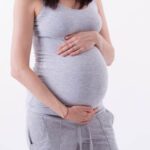Are you experiencing diarrhea and wondering if it could be a sign of pregnancy or your upcoming period? Understanding the symptoms of both pregnancy and menstruation can help provide clarity. Hormonal changes play a significant role in causing digestive issues, and it’s important to recognize the potential signs to differentiate between the two.
Diarrhea as a symptom is often associated with stomach bugs or food poisoning, but it can also be a lesser-known sign of pregnancy or an impending period. In this article, we will explore the link between hormonal changes and digestive issues, the potential for diarrhea as a sign of pregnancy, and how to differentiate between pregnancy and period-related diarrhea.
Many women may experience confusion when they start noticing unusual digestive symptoms like diarrhea. While it is not commonly discussed, understanding the potential signs of both pregnancy and menstruation can help women make informed decisions about their health. So is diarrhea a sign of pregnancy or period? Let’s delve into this topic to better understand our body’s signals.
The Link Between Hormonal Changes and Digestive Issues
During both pregnancy and menstruation, the body undergoes significant hormonal changes that can affect various systems, including the digestive system. These hormonal fluctuations can lead to a range of digestive issues, including diarrhea. Understanding the connection between hormonal changes and digestive problems is essential in differentiating between pregnancy-related and period-related diarrhea.
Hormonal Changes and Digestive Issues
The surge in hormones, such as estrogen and progesterone, during pregnancy and just before menstruation can have an impact on the gastrointestinal tract. These hormones can cause the muscles in the digestive system to relax, leading to slower digestion and potentially resulting in diarrhea. Additionally, these hormonal fluctuations can also lead to increased water retention in the body, which may contribute to loose stools or diarrhea.
Impact on Gut Health
The hormonal changes during pregnancy or before menstruation can also affect gut health by altering the balance of gut bacteria. This imbalance can lead to gastrointestinal symptoms like diarrhea. Furthermore, stress and anxiety related to pregnancy or menstrual symptoms can also exacerbate digestive issues by impacting gut function.
Role of Prostaglandins
Prostaglandins are hormone-like substances that play a crucial role in both pregnancy and menstruation. During menstruation, prostaglandins trigger uterine contractions to shed the uterine lining, but they can also affect the intestines, leading to cramps and diarrhea. Similarly, prostaglandins may contribute to gastrointestinal symptoms during early stages of pregnancy.
Understanding how hormonal changes affect the digestive system is key in recognizing whether diarrhea is a sign of pregnancy or period-related. Nonetheless, it’s important not to self-diagnose based solely on digestive symptoms; consulting a healthcare professional for accurate guidance is always advised.
Diarrhea as a Potential Sign of Pregnancy
When it comes to the early signs of pregnancy, many women may not realize that diarrhea can actually be one of them. The hormonal changes that occur in the body during pregnancy can impact the digestive system, leading to symptoms such as diarrhea. While not everyone will experience this symptom, it is important to understand how it can be linked to pregnancy.
Hormonal Changes and Digestive Issues
During pregnancy, the levels of hormones such as progesterone and estrogen increase significantly. These hormonal changes can affect the muscles in the digestive tract, leading to potential issues such as diarrhea. Additionally, the growing uterus can put pressure on the intestines, also contributing to digestive discomfort.
Understanding Diarrhea as a Sign of Pregnancy
For some women, experiencing diarrhea in early pregnancy can be confusing and worrisome. However, it is important to recognize that this is a common symptom for some individuals.
It is believed that the body’s response to hormonal changes, particularly during the first trimester, can lead to an upset stomach and diarrhea. If you suspect you may be pregnant and are experiencing diarrhea along with other symptoms such as missed period and breast tenderness, it may be worth considering taking a pregnancy test.
It is crucial for women who are unsure whether their symptoms are related to pregnancy or menstruation to consult with a medical professional for guidance and support on their reproductive health journey. Understanding the potential signs of both pregnancy and menstruation can help individuals make informed decisions about their health and seek appropriate care when necessary.
Diarrhea as a Potential Symptom of Menstruation
Many women experience changes in their digestive system during the menstrual cycle, and diarrhea is one of the common symptoms. The fluctuation of hormones, particularly prostaglandins, during menstruation can lead to various gastrointestinal issues, including abdominal cramping, bloating, and diarrhea. Prostaglandins are hormone-like substances that play a role in the contraction and relaxation of smooth muscle tissue, including those in the intestines. This can result in increased bowel movements and loose stools.
The severity of diarrhea as a symptom of menstruation can vary from woman to woman. For some, it may be a mild inconvenience, while for others, it can be more pronounced and disruptive. Some women may also experience other gastrointestinal symptoms such as nausea or vomiting alongside diarrhea during their period. Understanding these potential period-related symptoms can help individuals better manage their discomfort and seek appropriate care if necessary.
It’s important to differentiate between period-related diarrhea and other potential causes of gastrointestinal issues. While diarrhea is a common symptom of menstruation for many women, it’s essential to consider other factors that could be contributing to gastrointestinal distress. Keeping track of menstrual cycles and associated symptoms can help individuals identify patterns and distinguish between period-related digestive issues and those caused by other factors such as diet or illness.
How to Differentiate Between Pregnancy and Period-Related Diarrhea
Diarrhea is a common occurrence for many individuals, but when it happens in relation to pregnancy or menstruation, it can lead to confusion about the underlying cause. Understanding how to differentiate between pregnancy and period-related diarrhea can help women better recognize their body’s signals and seek appropriate care if needed.
One important factor to consider is timing. Diarrhea that occurs around the time of your expected period may be more likely related to menstruation. This can be due to hormonal fluctuations that occur during the menstrual cycle, leading to changes in bowel habits for some women. On the other hand, diarrhea as a sign of pregnancy might be experienced shortly after conception and implantation, often before a missed period.
Additionally, it is essential to pay attention to other symptoms that may accompany diarrhea. For example, if you are experiencing nausea, breast tenderness, and fatigue along with diarrhea, it could point towards early pregnancy. On the contrary, if you are also suffering from abdominal cramps and bloating alongside diarrhea, it could indicate premenstrual symptoms.
It’s also important to note that every woman’s body reacts differently, so what may be true for one person may not be true for another. If you have concerns about whether your diarrhea is related to pregnancy or your period, it’s always best to consult with a healthcare provider for personalized guidance.
| Signs | Pregnancy-Related Diarrhea | Period-Related Diarrhea |
|---|---|---|
| Timing | Shortly after conception and implantation | Around the time of expected period |
| Accompanying Symptoms | Nausea, breast tenderness, fatigue | Abdominal cramps, bloating |
Other Potential Causes of Diarrhea in Women
Many women may experience diarrhea at some point in their lives, and while it can be a symptom of pregnancy or menstruation, there are also other potential causes to consider. Understanding the various factors that can contribute to diarrhea is important for women in order to determine the appropriate course of action.
Here are some other potential causes of diarrhea in women:
- Dietary factors: Certain foods and drinks, such as spicy foods, high-fat foods, dairy products (if lactose intolerant), and caffeine, can cause digestive upset and lead to diarrhea.
- Stress and anxiety: Emotional stress and anxiety can affect the digestive system and lead to diarrhea. The body’s natural “fight or flight” response can disrupt normal digestion.
- Irritable bowel syndrome (IBS): IBS is a common gastrointestinal disorder that can cause symptoms like diarrhea, abdominal pain, bloating, and constipation. Hormonal changes during menstruation can exacerbate IBS symptoms.
- Infections: Bacterial or viral infections like gastroenteritis (stomach flu) or food poisoning can cause sudden onset diarrhea. These infections can be contracted from contaminated food or water.
- Medications: Some medications, such as antibiotics, laxatives, and certain blood pressure medications, can cause diarrhea as a side effect.
It’s important for women to consider these potential causes when experiencing diarrhea in order to address any underlying issues. If the diarrhea persists or is accompanied by severe symptoms such as dehydration, high fever, or persistent abdominal pain, seeking medical advice is crucial. Additionally, for pregnant women experiencing diarrhea, it is best to consult with a healthcare provider to ensure the well-being of both the mother and the baby.
When to Seek Medical Advice for Diarrhea During Pregnancy or Menstruation
During pregnancy or menstruation, experiencing diarrhea can be uncomfortable and concerning. While it is normal to have digestive issues during these times due to hormonal changes, there are certain situations when you should seek medical advice. Here are some instances when it is important to talk to a healthcare provider:
1. Persistent diarrhea: If you are experiencing frequent and persistent episodes of diarrhea that last for more than a couple of days, it is important to consult with a doctor. This could be a sign of an underlying condition that needs medical attention.
2. Signs of dehydration: Diarrhea can lead to dehydration, which can be especially risky during pregnancy. If you notice symptoms such as excessive thirst, dry mouth, dark-colored urine, or dizziness, it is crucial to seek medical help immediately.
3. Severe abdominal pain or cramping: While mild cramping can be common during pregnancy and menstruation, severe abdominal pain accompanied by diarrhea can indicate a more serious issue such as an infection or gastrointestinal problem.
In any of these cases, seeking medical advice promptly is essential for ensuring the health and well-being of both the mother and the baby. It is always better to err on the side of caution and consult with a healthcare professional if you have concerns about your symptoms.
Remember that diarrhea can be caused by various factors during pregnancy and menstruation, but knowing when to seek medical advice can help ensure that any potential issues are addressed promptly.
Conclusion
In conclusion, understanding the signs and symptoms of both pregnancy and menstruation is crucial for women to be in tune with their bodies. While diarrhea is not always a common symptom associated with either pregnancy or period, it can be a potential indicator of hormonal changes.
The link between hormonal changes and digestive issues is well-documented, so experiencing diarrhea as a sign of pregnancy or period is not uncommon. However, it is important to differentiate between the two and understand the subtle differences in other symptoms that accompany diarrhea.
Overall, being aware of your body’s signals and paying attention to any unusual changes in your digestive health can provide valuable insight into your reproductive health. Whether you are trying to conceive or simply tracking your menstrual cycle, understanding the potential causes of diarrhea in women can help in making informed decisions about seeking medical advice when necessary.
Ultimately, every woman’s experience with pregnancy and menstruation varies, so it is important to consult with a healthcare professional if you have concerns about diarrhea or any other symptoms that may indicate pregnancy or menstruation. By being proactive about your health and seeking proper medical guidance when needed, you can ensure that you are taking the best care of yourself.
Frequently Asked Questions
Is Diarrhea a Sign of Early Pregnancy or Period?
Diarrhea can be a sign of early pregnancy for some women, but it is not a definitive indicator on its own. It could also be a sign of an upcoming period due to hormonal changes.
How Do You Know if Your Period Is Coming or Your Pregnant?
The best way to know if you’re pregnant or if your period is coming is to take a pregnancy test. Other signs like breast tenderness, mood swings, and fatigue can also offer clues.
Do I Have Diarrhea Because I’m Pregnant?
Diarrhea can occur in early pregnancy due to hormonal changes, but it’s not a common symptom. However, if you are experiencing persistent diarrhea along with other symptoms, it’s best to consult with a healthcare provider to rule out any potential issues.

Welcome to my fertility blog. This is a space where I will be sharing my experiences as I navigate through the world of fertility treatments, as well as provide information and resources about fertility and pregnancy.





